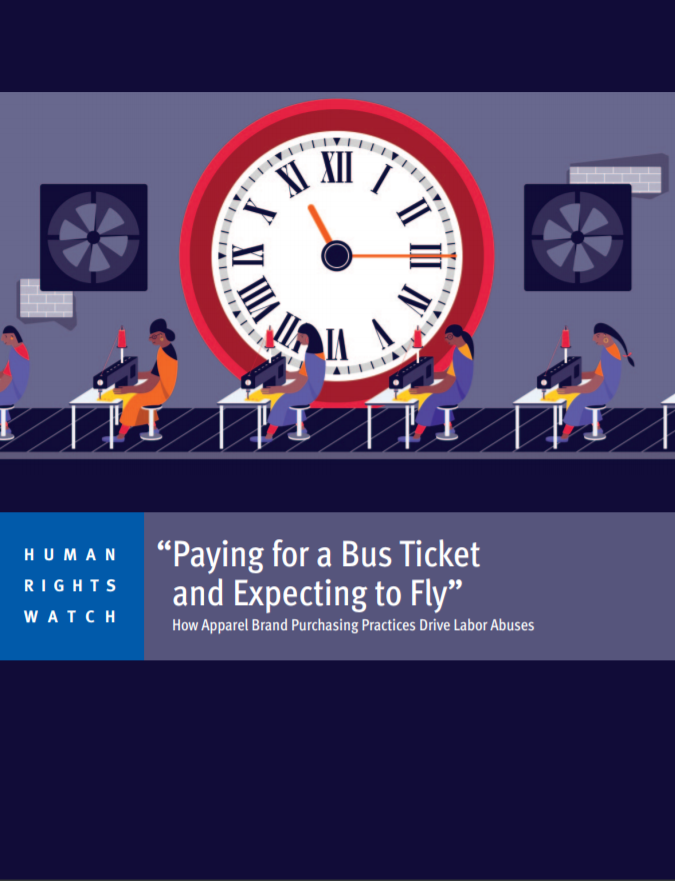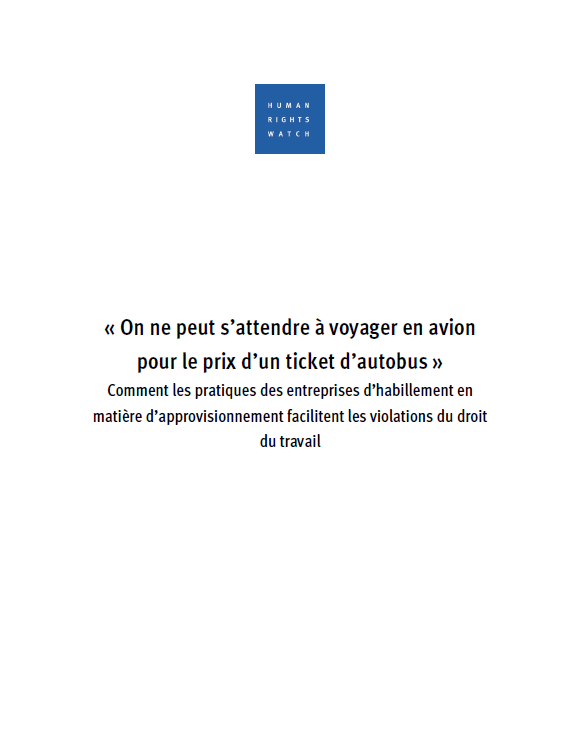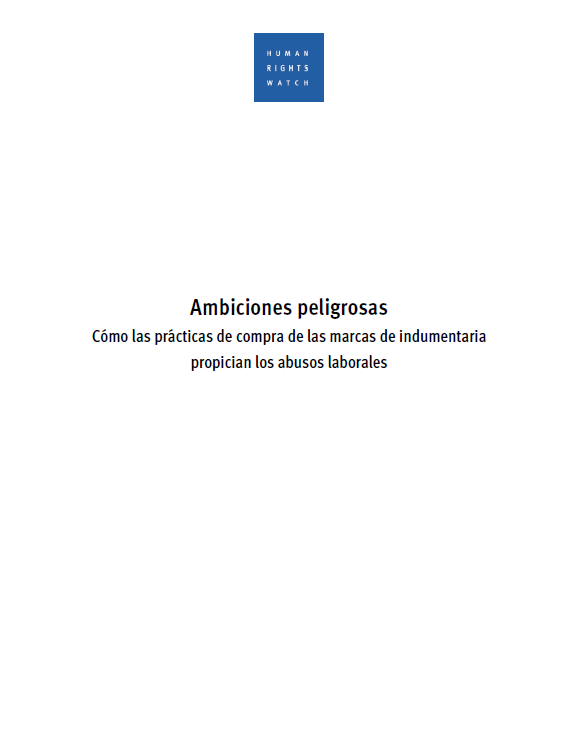This report is based largely on interviews with garment suppliers, social compliance auditors, and garment industry experts, including those with at least a decade’s experience sourcing for numerous global brands; hundreds of interviews with workers; and trade export data analysis for key producing markets from Asia. The report argues that brands’ poor sourcing and purchasing practices can be a huge part of the root cause for rampant labour abuses in apparel factories, undercutting efforts to hold suppliers accountable for their abusive practices. Because brands typically have more business clout in a brand-supplier relationship, how brands do business with suppliers has a profound influence on working conditions.



